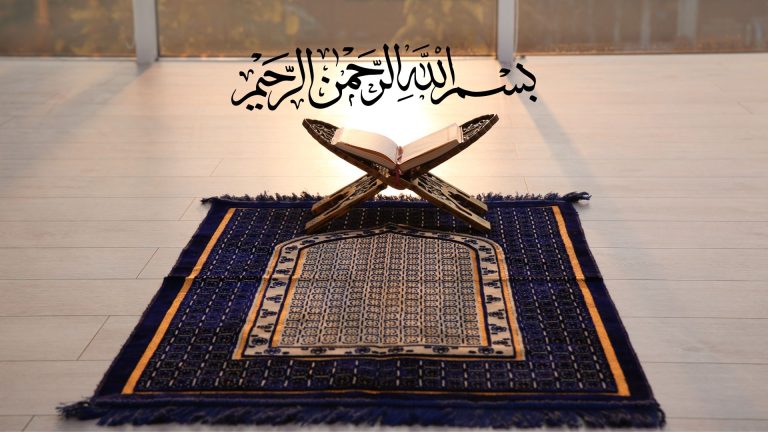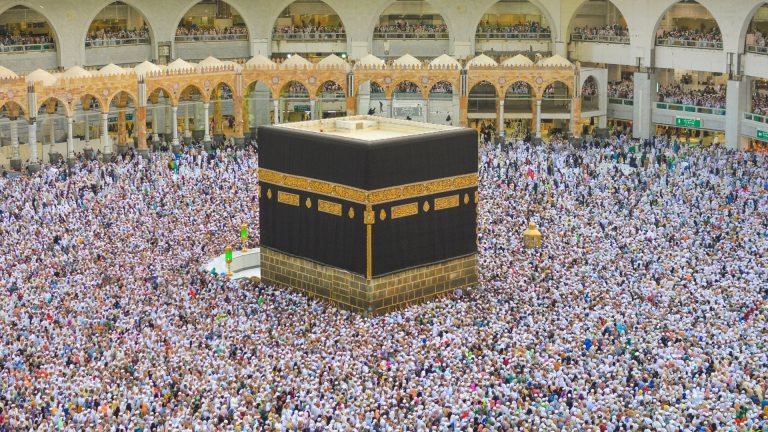What Are The Pillars Of Islam?
The Pillars of Islam are the foundation of the Islamic faith. These Islamic five pillars represent the fundamental duties and obligations that guide a Muslim’s life. They include professing faith in one God and the Prophet Muhammad, praying five times a day, giving to charity, fasting during Ramadan, and making a pilgrimage to Mecca if possible.
The five main responsibilities for Muslims are as follows: believing and declaring their faith, praying five times daily in a specific way, giving a portion of their wealth to those in need, fasting during Ramadan, and making a pilgrimage to Mecca if they can afford it and are physically able to. Let’s discuss Islamic faith pillars in detail.

5 Pillars of Islam
Muslims have five major life responsibilities that they must fulfill. These responsibilities are named pillars because they resemble a building’s sturdy foundation. The five pillars are the Hajj, Salah, Zakat, Sawm, and Shahada.
1. The statement of faith (shahada).
This is the cornerstone of Islam. This involves accepting Muhammad as the One True God and His Messenger. When Muslims say this with conviction, they become Muslims. This belief is summed up in the proclamation, “There is no god but God, and Muhammad is the Messenger of God.”
This line, which is frequently said in Arabic, is fundamental to the identity and faith of Muslims. Muslims demonstrate their commitment to Islamic values and beliefs by reciting the shahada with sincerity and conviction, which helps them integrate into the community.
2. Prayer (salat)
Muslims have a special prayer routine, which they perform five times daily. These prayers are known as Salah. They are offered at specific times: at dawn, noon, mid-afternoon, sunset, and after dark.
Muslims have the flexibility to pray either alone or in a congregation. They can pray in any clean place, whether at home, work, or outdoors. However, there’s a special significance to praying together in a mosque, a place of worship for Muslims. In mosques, prayers are led by a designated person called an imam.
On Fridays, there is a congregational prayer known as Jumu’ah. During Jumu’ah, men gather in mosques for a special midday prayer and listen to a sermon delivered by the imam. While women are welcome to join these congregational prayers, it’s not obligatory for them.
3. Alms (zakat)
In accordance with Islamic teachings, Muslims are obligated to give a portion of their wealth to support those in need. This practice is known as zakat. It’s considered a fundamental duty to purify one’s wealth.
Establish prayer, pay alms-tax,1 and bow down with those who bow down. [Quran 2:43]
Zakat is typically calculated as a percentage of a person’s savings and assets, with specific guidelines outlined in Islamic law. This wealth is then distributed to various categories of recipients, such as the poor, needy, orphans, and those in debt, among others.
Additionally, some affluent Muslims go beyond the obligation of zakat and engage in voluntary acts of charity, known as sadaqah. This may involve funding community projects and building essential infrastructure like mosques, schools, hospitals, and other charitable institutions. These contributions uplift and support the broader Muslim community and fulfill their religious duty of helping those in need.

4. Fasting (sawm)
During the holy month of Ramadan, Muslims abstain from food and drink from dawn until sunset. This practice, known as fasting, is one of the Five Pillars of Islam and is observed by Muslims worldwide.
Fasting serves several purposes in Islam. Firstly, it encourages self-discipline and self-control, helping Muslims to develop spiritual and moral virtues. By refraining from physical desires, Muslims focus on spiritual growth and self-improvement.
Secondly, fasting boosts empathy and compassion for the less fortunate. By experiencing hunger and thirst firsthand, Muslims gain a deeper understanding of the struggles those deprived of necessities face. This heightened awareness prompts many Muslims to increase their charitable acts during Ramadan, contributing to the welfare of those in need.
5. Pilgrimage (hajj)
Every Muslim who is physically and financially capable is obligated to journey to the holy city of Mecca at least once in their lifetime. This pilgrimage is known as the Hajj and is considered the last Pillar of Islam.
During the hajj, pilgrims from all corners of the globe converge on Mecca to perform a series of rituals that commemorate the actions of the Prophet Abraham and his family. Central to the pilgrimage is the circumambulation of the Kaaba, a cube-shaped building covered in black cloth. Muslims believe that the Kaaba was built by the Prophet Abraham as a place of worship dedicated to God.
The hajj occurs annually during the Islamic month of Dhu al-Hijjah. It involves several days of intense spiritual activities, including prayers, supplications, and rituals at various holy sites in and around Mecca. The pilgrimage culminates in the celebration of Eid al-Adha, a major Islamic holiday commemorating Abraham’s willingness to sacrifice his son as an act of obedience to God.
Why are the Islamic Five Pillars Important?
The five pillars are crucial because they help Muslims live their faith practically:
Facts About the Islamic Pillars
FAQs
What are the pillars of Islam in sequence?
The five pillars, including the profession of faith (shahada), prayer (salah), giving to charity (zakat), fasting (sawm), and pilgrimage (hajj), form the fundamental principles of Islamic practice.
Why are the Islamic Pillars Important?
The pillars of Islam are crucial because they help Muslims live their faith practically, fostering spiritual growth, self-discipline, compassion, and unity within the Muslim community.
What is the third pillar of Islam?
The third pillar of Islam is Zakat, also known as almsgiving. Zakat, the giving of alms, is the third pillar of Islam.
Conclusion
The five pillars of Islam form the cornerstone of Muslim faith and practice. They encompass belief, worship, charity, self-discipline, and community, guiding Muslims in their spiritual journey and daily lives. The pillars of Islam serve as the guiding principles that shape the faith and practices of Muslims worldwide.
Through adherence to these pillars, Muslims cultivate spiritual growth, discipline, compassion, and unity within their communities. By fulfilling these obligations, Muslims affirm their commitment to their faith and strengthen their connection to Allah.





